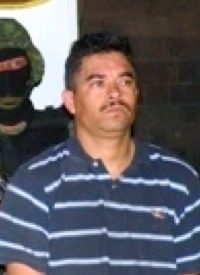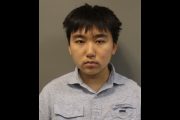
Zapata and fellow agent Victor Avila were attacked by 10 to 15 gunmen on February 15 while driving near San Luis Potosí. Zapata was shot to death, and Avila was wounded.
According to the Daily Reporter for February 24, Espinoza, known also as “El Piolin,” or Tweety Bird, told soldiers that he misidentified Zapata's and Avila's vehicle. Army spokesman Colonel Ricardo Trevilla explained: "[The shooting] occurred because of the characteristics of the vehicle, given that [the suspects] thought it was being used by members of a rival criminal group.”
On February 23, the Wall Street Journal reported that a possible Zeta member, Jesús Rejón, was high on the suspect list. A former Mexican special forces member, Rejón left the military and became a brutal assassin, also running a training camp for Zeta recruits. No mention was made in today’s news about the Rejón connection.
Drug gangs frequently set up roadblocks or “checkpoints” to ambush drivers and steal vehicles such as the agents’ Suburban, which is similar to ones preferred by cartels.
Espinoza had been arrested in 2009, but jumped bail and disappeared until soldiers caught him and five other suspects on Wednesday in raids on four safehouses of the Zetas in San Luis Potosí. Three women and a child were also found in the houses, along with five rifles.
Army spokesman Trevilla reported that intelligence officers had identified a Zetas cell in San Luis Potosí headed by Espinoza as recently as December. Other area raids have turned up additional gang members.
When arrested on Wednesday, the group of six included a unnamed Honduran citizen, and one man who had been beaten. The army quoted Espinoza as saying that two of the other five members had participated in the attack on the ICE agents, but didn’t specify which two.
San Luis Potosí is in the crosshairs of a power struggle between the Zetas and the Gulf cartel. The Zetas were formerly the enforcement arm of the Gulf cartel, but split from it last year, and a violent turf war has raged ever since, each group grappling for favored drug trade routes. Migrants also use the routes on the way to the United States and are often recruited to work for the gangs.
The White House issued a statement from President Obama thanking Calderon for his efforts to bring the murderers to justice, which said in part,
The president said neither the United States nor Mexico could tolerate violence against those who serve and protect our citizens, as Special Agent Zapata did so selflessly through his own life.
Homeland Security Secretary Janet Napolitano declared:
[The United States] will continue to assist the ongoing Mexican investigation with every resource at our disposal and to ensure that all those responsible for Special Agent Zapata's murder face justice.
We will also continue our vigorous and coordinated efforts to defeat the criminal organizations operating in Mexico that seek to exploit our shared border.
According to newser.com, Napolitano and U.S. Attorney General Eric Holder attended Zapata's funeral Tuesday in his hometown of Brownsville, Texas. Both vowed to continue helping Mexico in its war against drug cartels battling for lucrative trafficking routes into the United States. The Homeland Security and Justice Departments have formed a joint task force led by the FBI to help Mexico find the killers.
Despite assurances from Napolitano, Holder, Obama, and others, border violence continues to escalate. Americans and Mexican alike are being tortured and murdered. An increasingly number of Americans in border states believe solid law enforcement at their southern borders is imperative and overdue.
Photo of Jamie Zapata: AP Images



